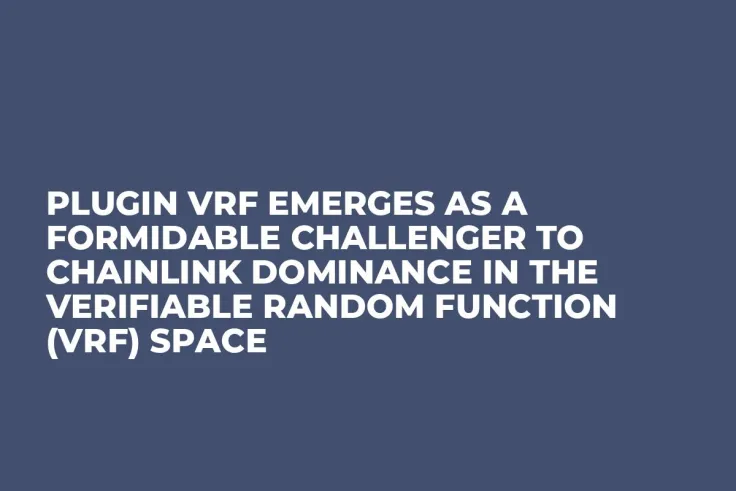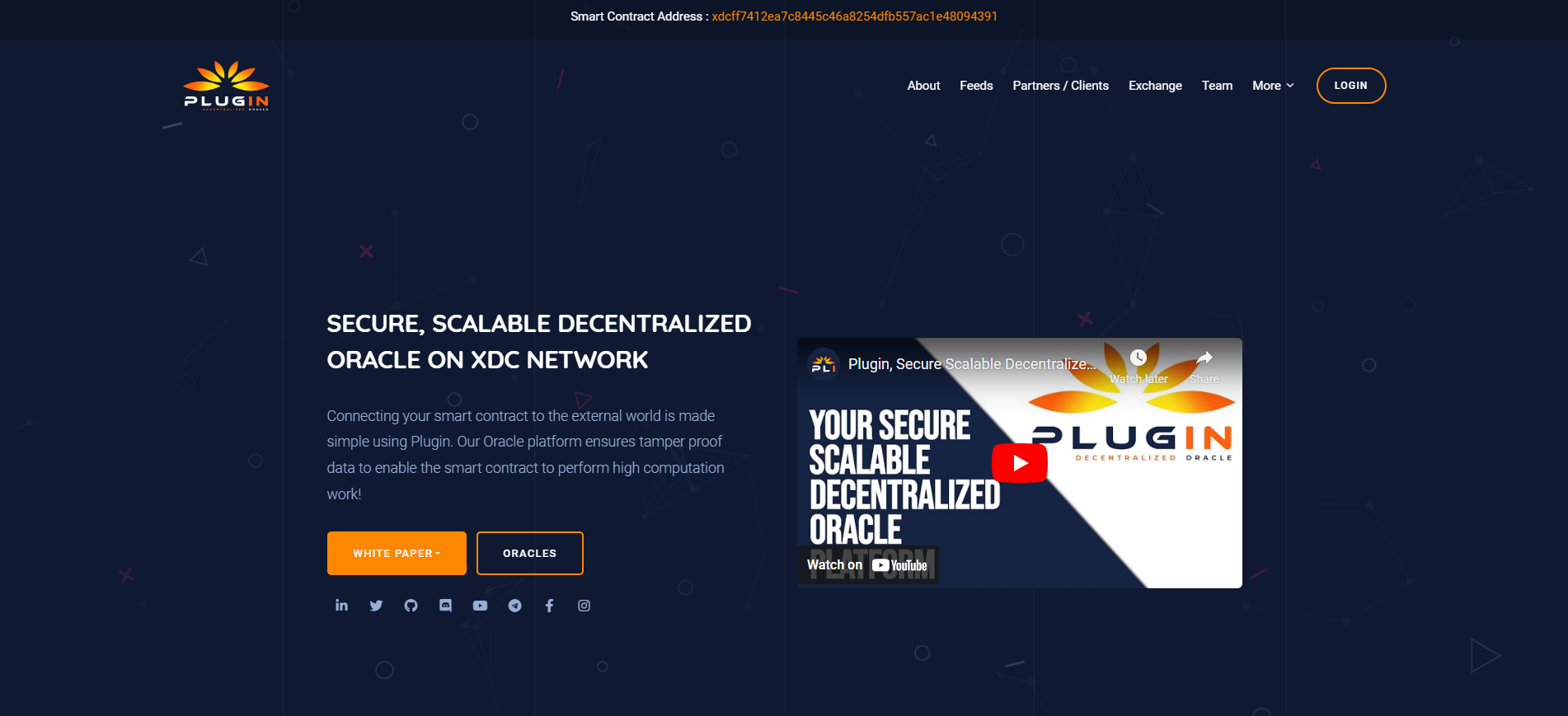
Disclaimer: The opinions expressed by our writers are their own and do not represent the views of U.Today. The financial and market information provided on U.Today is intended for informational purposes only. U.Today is not liable for any financial losses incurred while trading cryptocurrencies. Conduct your own research by contacting financial experts before making any investment decisions. We believe that all content is accurate as of the date of publication, but certain offers mentioned may no longer be available.
In the fast-evolving landscape of blockchain technology, the competition among cryptographic tools is heating up, with Plugin VRF positioning itself as a robust contender in the Verifiable Random Function (VRF) arena. Plugin VRF is gaining momentum, backed by its unique features and advantages. Recently, DeGaming has integrated Plugin VRF functionality into its gaming ecosystem.
Enhanced decentralization, low gas, advanced DX: What is Plugin VRF?
One of Plugin VRF's standout features is its commitment to enhanced decentralization. By leveraging existing blockchain infrastructure for randomness generation, Plugin minimizes reliance on off-chain oracles, potentially offering a more decentralized solution than Chainlink VRF. In contrast, Chainlink VRF relies on off-chain computation, which, if not implemented carefully, introduces a central point of failure.

Cost efficiency is a key consideration in blockchain applications, and Plugin VRF aims to address this by utilizing on-chain randomness generation. This approach has the potential to result in lower gas costs compared to Chainlink VRF's off-chain computations. The latter's gas fees are subject to fluctuations based on network congestion and request complexity, potentially impacting project budgets.
For developers, the ease of integration is paramount. Plugin VRF integrates seamlessly with existing Solidity development workflows, providing a familiar environment for developers well-versed in the language. On the other hand, Chainlink VRF requires additional development effort for off-chain integration and smart contract interaction, potentially increasing development time and complexity.
Innovation backed by thriving community
The strength of a project often lies in its community, and Plugin VRF is gaining ground with a rapidly growing and supportive user base. Various blockchain projects are rallying behind Plugin VRF, contributing to the availability of increasing resources and support. While Chainlink VRF boasts a larger community, Plugin VRF's community is catching up quickly.
In the realm of blockchain, innovation is a driving force, and Plugin VRF's open-source nature positions it as a platform for customization and adaptation to specific blockchain needs. This flexibility potentially fosters innovation and opens doors for niche applications. In contrast, Chainlink VRF, while offering flexibility, has closed-source components that may limit customization options for advanced users.
PLI Token: One-stop asset for new-gen VRF ecosystem
The PLI token, a key part of the goPlugin system on XDC Network, is available for trading on well-known exchanges like Bitrue, XT, Globiance, ProBit, Bitmart and HitBTC. These platforms make it easy for users to buy, sell and interact with PLI tokens. The PLI token's strength comes from being built on the reliable and secure XDC Network, ensuring a smooth and efficient experience for users. Users can seamlessly engage with PLI tokens on these exchanges, benefiting from the enhanced decentralization, reduced gas fees and familiar development experience provided by Plugin VRF.
As the competition in VRF intensifies, the blockchain community eagerly awaits further developments and innovations in the Verifiable Random Function space. With Plugin VRF and Chainlink VRF platforms offering unique strengths, the choice between them will likely depend on individual project requirements and the evolving needs of the blockchain ecosystem. Plugin VRF's rapid rise as the fastest-growing contender in the VRF space signifies a shift in momentum. With its emphasis on decentralization, cost efficiency and developer-friendly integration, goPlugin VRF is carving out its niche in the blockchain ecosystem, challenging the status quo and presenting a compelling choice for projects seeking a cutting-edge solution.
 Vladislav Sopov
Vladislav Sopov Dan Burgin
Dan Burgin